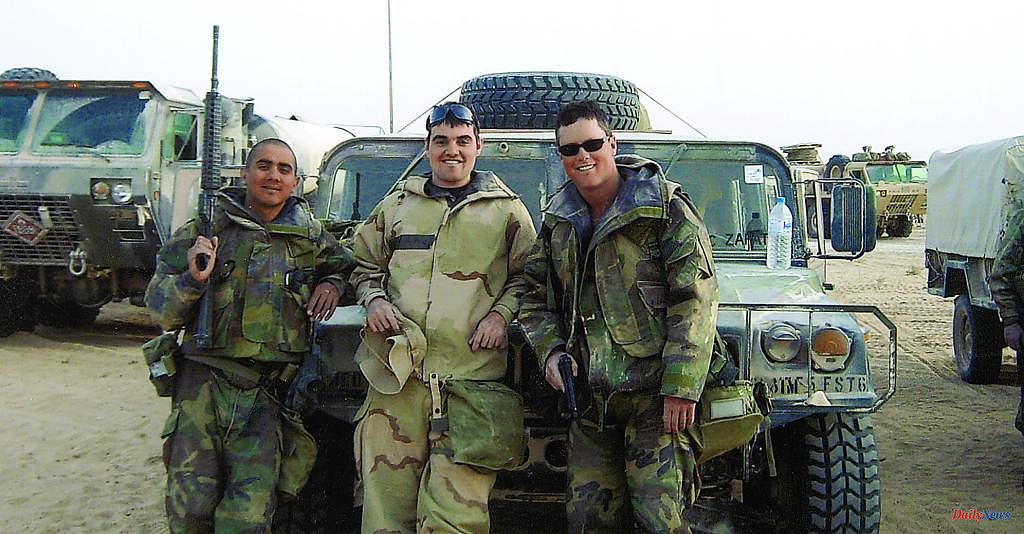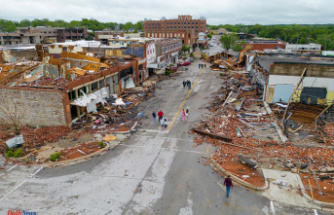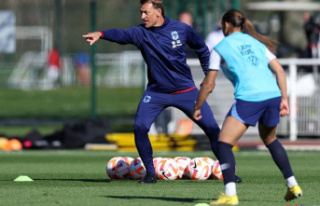"Wars become crueler when they stop having witnesses," warns Manuel Torres Aguilar, director of the UNESCO Chair in Conflict Resolution at the University of Córdoba, who wanted to mark the 20th anniversary of the death of Julio Anguita Parrado with the creation of a permanent seminar for journalists in conflict zones.
The official opening will be on April 13, at seven in the afternoon and in the rectory of the Cordoba University, with a conference by Gervasio Sánchez, countryman of Julio Anguita Parrado and winner in 2011 of the International Prize for Journalism that It also bears his name.
"Julio was called to become a great correspondent or special envoy," recalls Gervasio. "Their death of his was a great disgrace... That day he had made a very sensible decision: not to embed himself in a combat unit that was going to face an all-out war situation."
"The youngest believe that the brave are those who put on their helmets and bulletproof vests and run into combat without any kind of experience, the easiest way for them to kill you," warns the journalist and photographer from Córdoba. "In my opinion, the bravest are those who meditate on decisions and make them based on their limitations. Unfortunately, a sensible decision cost him his life."
"Personally, I feel very grateful for having received the Julio Anguita Parrado International Award: firstly because it bears his name and secondly because it is awarded in my hometown," acknowledges Gervasio Sánchez, who will build a bridge between the wars in Iraq and Ukraine at the end of 20 years...
"We are facing the most censored conflict that I have covered in 40 years of experience," says the veteran journalist. "The Russians prevent work in their areas and the Ukrainians do the same in theirs. Yes, they give you a press accreditation, but you have to ask for daily permits to report from the most conflictive areas. And front-line coverage is almost impossible combat, something that was surprisingly easy in Bosnia, for example.
"So, the problem was staying without sending a chronicle or a photo of several megabytes for lack of a phone," he recalls. "The broadcasts have now improved our lives as special envoys, but they have convinced the opponents that it is no longer necessary to rely on journalists for reporting or propaganda. They are only interested in journalists as transmission belts for their causes and, of course, as long as the coverage is positive. If you try to cross the established lines and go to certain prohibited areas or tell what they don't like to hear, you risk losing your accreditation."
Gervasio Sánchez has distinguished himself above all "for putting a face to the victims and for making visible the suffering caused by wars," emphasizes Manuel Torres Aguilar, who aspires to turn the Julio Anguita Parrado seminar into a meeting forum for journalists in areas of conflict. Torres highlights the impulse given to the UNESCO chair of conflict resolution by the rector of the University of Córdoba, Manuel Torralbo, convinced of the essential role of journalists as "speakers in a world in crisis that is witnessing the renewal of situations that seemed forgotten".
"Julio is no longer here, the wars and the scoundrels are," Manuel Torres Aguilar writes these days in the Córdoba newspaper, paraphrasing Julio Anguita González, who died in 2020, 17 years after his journalist son and special envoy for EL MUNDO to the Iraq war. "These damn wars and, of course, those who believe them who do not die in them, have not served for human punishment."
"Without the witnesses of the cruelty that is born from this collective failure that wars are, we would not be able to listen to the testimonies of the human rights violations that are committed in them, nor denounce the abuses of all kinds that human cruelty is capable of put into play", concludes the also professor of History of Law.
"Julio Anguita Parrado tried to give voice to that commitment, leaving his life in the effort (...) With the purpose of honoring his memory, we have created this seminar that bears his name, to highlight the immense value that journalists have , putting eyes, ears, passion and, if necessary, life, in those wars that should not fall into oblivion or silence".
According to the criteria of The Trust Project












